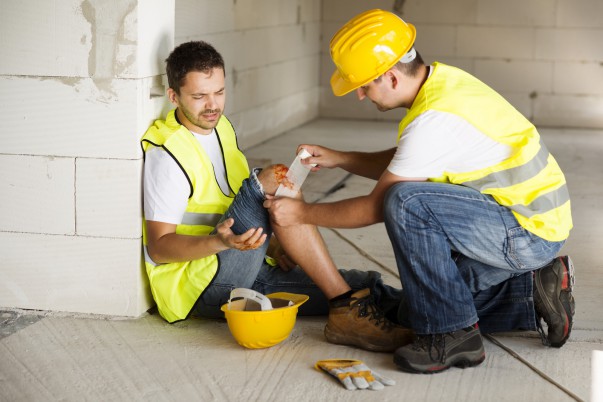Accidents can happen at any time and being prepared by knowing basic first aid could mean the difference between life and death.
What is basic first aid?
Basic first aid is being able to provide basic medical care to someone who is experiencing a sudden injury or illness. It often comes in forms such as treatment to burns cuts or even insect things, but could also consist of providing support to someone in the middle of a medical emergency in these scenarios it’s important to remain
- Calm
- Assess the situation
- And work to stabilize
The person when administering aid, it’s important that you always remain calm so you could think clearly and assess the situation while comforting the person in distress.
After you take a deep breath it’s important to assess the situation to see if basic aid is required or from urgent medical attention is required. Use your knowledge and basic aid skills to stabilize the injury. If basic aid isn’t working reassess your approach and provide basic care until emergency help arrives.
First aid kit:
When you think of first aid one of the first things that come to mind is a first aid kit. The first aid kits contain the proper equipment needed to treat the most minor injuries while most of the supplies are not enough to treat major medical emergencies that can often provide temporary relief until medical professionals arrive to help.
As an employee of service sanitation, it’s important to familiarize yourself with the locations of these boxes should they ever be required. These boxes could often be found inside the garage bay and inside each of the branch offices service technicians should also have a small first aid kit with them at all times in case of minor injuries.
Defibrillator:
In addition, to a first-aid kit, a few of our branch locations are equipped with an automated external defibrillator or an AED this medical device is designed to analyze heart rhythms and deliver an electric shock to victims experiencing cardiac arrest. Should you ever have a need to use this device it is important that you quickly contact 911 and then find someone who is trained on how to use the defibrillator.
Universal Precautions:
When administering first aid it’s important that you take proper precautions to ensure your safety and the safety of the person you are caring for. This includes washing your hands, wearing proper PPE, and disposing of any clothing, bandages, or protective equipment that may have been contaminated. The first step to basic first-aid is proper hygiene best achieved by washing your hands when washing your hands try to use hot water and antibacterial soap if available. If unavailable consider using a disinfectant wipe which can often be found in a standard first-aid kit
After washing your hands you’ll want to protect yourself and the person you are caring for by wearing proper personal protective equipment also known as PPE. The most common first-aid PPE includes but is not limited to gloves, safety glasses, and breathing barriers should CPR be necessary. Practicing good housekeeping and trash disposal are important after administering first aid. This includes the disposal of clothing, bandages, or PPE that may have contacted blood or body fluids. For contaminated clothing, it’s important to either dispose of them or wash them immediately to reduce the risk of infection through the skin. Use bandages, PPE, sharp objects, or needles should be immediately disposed of using a biohazard bag or a sharps container when handling these objects always follow the nonpalpable items and service procedures for proper disposal. After disposing of these objects be sure to wash your hands once again using hot water and antibacterial soap for a minimum of twenty seconds.
Common everyday injuries and illnesses that can treat with first aid:
Common everyday injuries and illnesses that you may experience while working in the field can include
- Cuts
- Abrasions
- Burns
- Back pains
- Hypothermia
- Difficulty breathing
- Eye injuries
- Allergic reactions
- Heatstroke
- Chest pains
- Head injuries
- Or even poison ingestion
Each of these potential injuries or illnesses will often require immediate medical attention.
Learn to provide occupational first aid:
Providing the first in a critical situation can save the life of a person and it’s critically important to learn how to provide occupational first aid with responsibility and calmness by understanding the situation and making the right decision in case of emergency. If you want to learn from the best course of occupational first aid in Singapore, we recommend you to take a look by clicking here and get yourself registered and be a responsible citizen.

